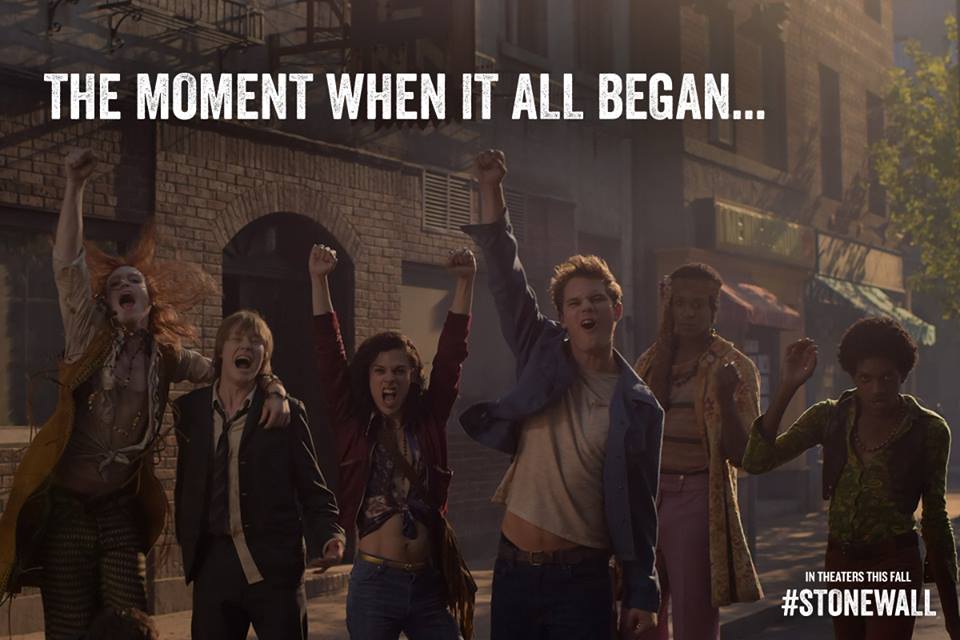The historical moment we call “Stonewall”—a series of grass-roots protests with complex motivations and diverse participants that took place in and around a divey Manhattan fag bar during the summer of 1969—has always been something of a Rorschach test: We see in it what we need to see...
Where a critic for the Hollywood Reporter was pleased with the movie’s encouragement of “political awakening,” Gawker’s Rich Juzwiak recoiled at a straight-pandering “monstrosity” whose “badness is nearly unfathomable.” Our disparate reactions to a movie like Stonewall can’t help but reveal personal preoccupations and wishes, and those, in turn, suggest a queer “community” that is very much unsure of where it wants to go next.
To be clear, taking Stonewall seriously in the way I have is not the same as offering a defense. It doesn’t warrant that. But I do think it’s worth considering why such a small, misbegotten movie—one that we could, as Salon’s Andrew O’Hehir suggests, just as easily nudge into the memory hole—has generated so much angst.
Stonewall was a moment when we all put aside our differences and united to finally fight back—or at least that’s what most of us want it to have been. Stonewall, on the other hand, comes at a moment when the always jury-rigged alliance between the various queer contingents feels more uncertain every day; when our debates over terminology, community norms, political goals, and paths toward social justice feel increasingly fractious.
Is it any surprise the stakes of this movie—our movie—feel so high? Usually cinema screens simply reflect back the light projected onto them—but sometimes, they act as mirrors for the audience as well. This is one of those times.
The Stakes Of Stonewall, J Bryan Lowder, Slate.
Only the brilliantly perceptive Mr Lowder could make Fagburn temporarily lift his ban on blogging about this sodding movie again.
PS The only other article worth reading on this hoo-hah is Tim Teeman's The Gay Shame Of Stonewall The Movie.
Anyway... No more on Stonewall, it's got boring.
Everyone's feigning outrage now, it's all a bit 'Cecil The Lion'.
PS And finally... here's Tommy Lanigan-Schmidt, your actual surviving Stonewall street kid...
The movie is pretty accurate in terms of the street kids being the main
engine of things. In one criticism of this film, someone was saying they
were angry because there were so many gay stereotypes. Gay stereotypes
are what made it happen. The people who passed for straight hid and
didn’t want to be active at the beginning. The straighter-acting people
ran away.
Friday 25 September 2015
Subscribe to:
Post Comments (Atom)







No comments:
Post a Comment